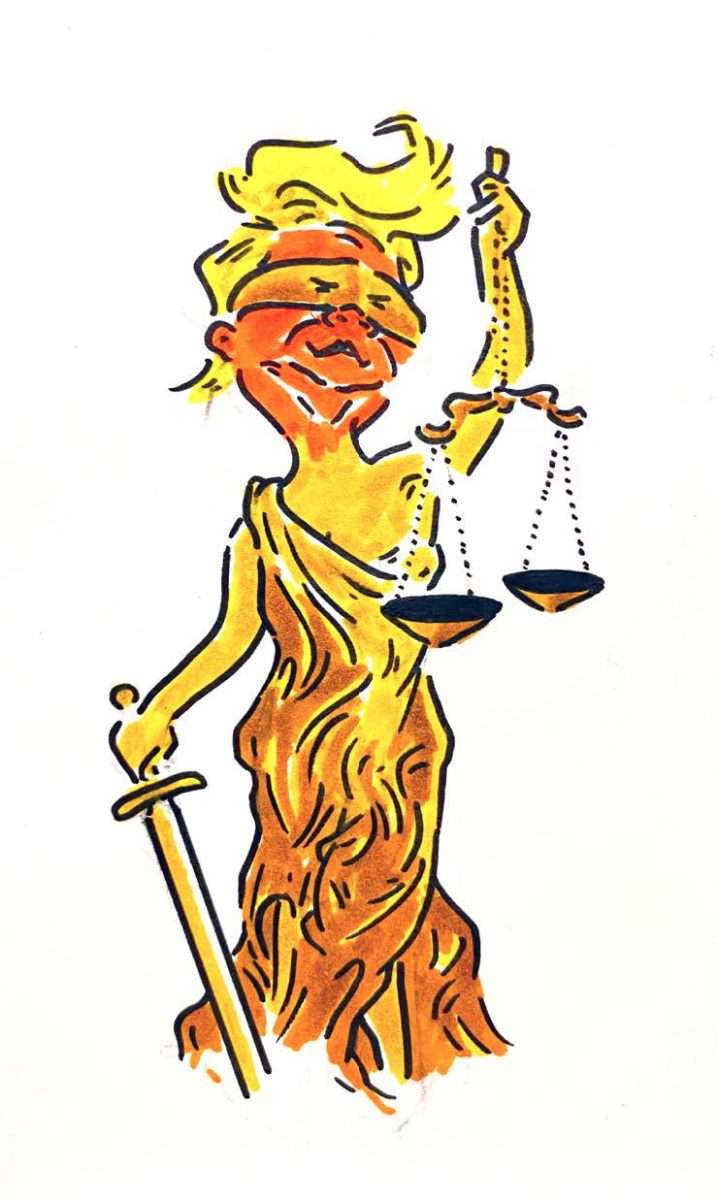When I was first asked to write about President Trump’s moves to target law firms, I was left scratching my head. After a flurry of phone calls with mysister—a soon-to-begraduate from law school—I was still unsure of what to write and more unsure of what to think. My vision of America— as a country of justice, freedom, and liberty—is disappearing more and more every day.
On March 6, Trump issued an executive order “addressing risks from Perkins Coie LLP,” a law firm that represented Hillary Clinton’s campaign in 2016 and created a dossier alleging the Trump campaign’s ties with Russia in the same year. In the order, Trump directed the heads of the Justice and Homeland Security Departments to “seek sanctions against attorneys and law firms who engage in frivolous, unreasonable, and vexatious litigation against the United States.”
While watching clips of the Oval Office meeting on Friday, I expected to hear some reason for the administration’s actions. Instead, I was met with the irony of a man who was convicted of 34 felony counts proclaiming simply, “[The firms] did bad things.”
This isn’t the first time Trump has targeted law firms whose actions do not align with his interests. He also targeted attorneys at Paul, Weiss, Rifkind, Wharton & Garrison LLP in a separate executive order for having filed lawsuits against individuals involved in the January 6 protests.
By punishing lawyers for representing cases opposing his agenda, the Trump administration threatens the very foundation of our 230-year-old legal system. These executive orders prohibit federal agencies from engaging with these law firms and suspend their security clearances, which will limit their ability to argue cases that require them to examine classified materials.
The administration has provided no evidence that these firms pose a genuine threat to national security; instead, they are being targeted for their choice to represent clients that Trump sees as his enemies.
Limiting attorneys’ ability to represent clients is a direct attack on the freedom of lawyers to advocate for clients without fear of retaliation. These orders directly contradict the Fifth Amendment, undermining the foundational principle of due process—the right to a trial and the right to be defended in court—which is critical for a functioning democracy.
With most firms unwilling to oppose the Trump administration, people who are targeted by its actions—in particular, marginalized groups— may no longer be able to obtain competent legal representation. Many injustices will go unchallenged if the right to due process is compromised. By silencing those who oppose him, Trump will be able to advance his political agenda without backlash. But if our government does not protect our constitutional rights to free speech and due process, the American justice system will be fundamentally broken. Criticism is a fundamental part of democracy, because it allows civilians to act as checks-and-balances for their government. By sanctioning these firms, America can no longer consider itself a full democracy.
As much as I hope for Trump to be impeached a third time, sitting and lamenting this dire situation won’t help. The key lies in advocacy. If we want to keep our democracy, we must start fighting for the principles that uphold our legal system and stand against the government’s attempts to silence us through intimidation.







